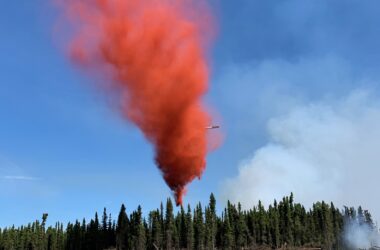With the onset of sub-zero temperatures, many people will begin turning to alternative heating measures to generate just a little extra warmth around the house, which makes it a good time of year for some tips on how not to set your house on fire.
For those firing up that dormant fireplace for the first time since last winter, here are a few important reminders courtesy of the United States Fire Administration. Keep anything that can burn at least 3 feet from your fireplace; don’t burn paper in your fireplace; put the fire out before you go to sleep or leave your home; try to have your chimney inspected and cleaned each year by a professional; always keep a glass or metal screen in front of your fireplace to prevent embers or sparks from jumping out; and make sure to put ashes in a metal container with a lid. Then place the container outside at least 10 feet from your home.
You might say, “I don’t need to worry about that; I have an electric fireplace.” Well, the USFA has a tip for you too: make sure any fireplace “on” switches and/or remote controls are out of the reach of children.
All these same tips also apply to wood-burning stoves, with a few added points. Make sure your wood stove has been tested by a qualified testing laboratory and keep the doors of your wood stove closed unless loading or stoking the live fire.
Fireplaces and wood stoves aren’t the only extra heat method folks turn to around this time, though. Kenai Fire Marshal Jeremy Hamilton offered a few tips for safely handling space heaters as well as kerosene or propane heaters;
“When we get these cold breaks, we start looking for other means of heating their houses, and so a lot of folks use either electric space heaters or maybe they have kerosene heaters. Stuff we want to look at for those [are] we never want to leave them unattended. Never leave your room or definitely don’t leave your house if you have a space heater going. We want your space heaters 3 feet from combustibles–a lot of people will kind of put them up next to [their] couches. I see it a lot of times when I go into offices, they’ll be underneath people’s desks, and so we really want those things to be away from combustibles where that radiant heat could slowly heat things up and cause combustible materials to ignite. We really don’t recommend using extension cords with our space heaters. A lot of those space heaters draw a lot of power, and if we just have those little flimsy residential extension cords, they’re not really braided for that much electricity.”
Hamilton also mentioned people using space heaters should make sure they have a device with tip-over protection–a mechanism which causes the heater to shut off automatically if knocked over.
Have a Happy Holiday season and follow these tips to keep your family safe, and make sure your home is not at risk of fire.






